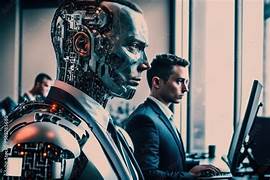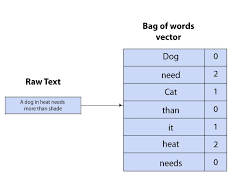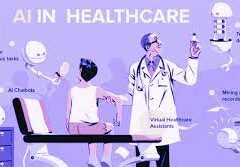The Impact of Generative AI on the Future of Work
Automation has long been a source of concern and hope for the future of work. Now, generative AI is the latest technology fueling both fear and optimism.
AI’s Role in Job Augmentation and Replacement
While AI is expected to enhance many jobs, there’s a growing argument that job augmentation for some might lead to job replacement for others. For instance, if AI makes a worker’s tasks ten times easier, the roles created to support that job could become redundant.
A June 2023 McKinsey report highlighted that generative AI (GenAI) could automate 60% to 70% of employee workloads. In fact, AI has already begun replacing jobs, contributing to nearly 4,000 job cuts in May 2023 alone, according to Challenger, Gray & Christmas Inc. OpenAI, the creator of ChatGPT, estimates that 80% of the U.S. workforce could see at least 10% of their jobs impacted by large language models (LLMs).
Examples of AI Job Replacement
One notable example involves a writer at a tech startup who was let go without explanation, only to later discover references to her as “Olivia/ChatGPT” in internal communications. Managers had discussed how ChatGPT was a cheaper alternative to employing a writer. This scenario, while not officially confirmed, strongly suggested that AI had replaced her role.
The Writers Guild of America also went on strike, seeking not only higher wages and more residuals from streaming platforms but also more regulation of AI.
Research from the Frank Hawkins Kenan Institute of Private Enterprise indicates that GenAI might disproportionately affect women, with 79% of working women holding positions susceptible to automation compared to 58% of working men.
Unlike past automation that typically targeted repetitive tasks, GenAI is different—it automates creative work such as writing, coding, and even music production. For example, Paul McCartney used AI to partially generate his late bandmate John Lennon’s voice to create a posthumous Beatles song. In this case, AI enhanced creativity, but the broader implications could be more complex.
Other Impacts of AI on Jobs
AI’s impact on jobs goes beyond replacement. Human-machine collaboration presents a more positive angle, where AI helps improve the work experience by automating repetitive tasks. This could lead to a rise in AI-related jobs and a growing demand for AI skills.
AI systems require significant human feedback, particularly in training processes like reinforcement learning, where models are fine-tuned based on human input. A May 2023 paper also warned about the risk of “model collapse,” where LLMs deteriorate without continuous human data.
However, there’s also the risk that AI collaboration could hinder productivity. For example, generative AI might produce an overabundance of low-quality content, forcing editors to spend more time refining it, which could deprioritize more original work.
Jobs Most Affected by AI
- Administrative: GenAI tools can assist with basic tasks such as email correspondence, data analysis, and scheduling. Tools like Microsoft 365 Copilot are set to revolutionize office productivity.
- Content Writers: AI can generate text that mimics human writing, which could impact content writers in fields requiring less nuance. However, original or specialized writing may become more valuable as AI-generated content proliferates.
- Coding: AI tools like ChatGPT can produce code quickly and accurately, which might concern coders focused on high-volume output. However, those who prioritize quality could benefit from using AI to enhance their work.
- Customer Service: AI is already transforming customer service with chatbots, robotic process automation, and sentiment analysis, reducing the need for human workers.
- Drivers: AI’s role in vehicles is reshaping driving jobs, with rideshare companies and the trucking industry adopting AI for various tasks, from driver assistance to route planning.
- Legal: AI is expected to automate many routine legal tasks, such as document review and contract analysis, potentially reducing the demand for paralegals and legal assistants.
- Marketing: AI can automate content creation, customer segmentation, and social media management, enabling marketers to work more efficiently.
- Manufacturing: AI has long been used in manufacturing to automate physical tasks, and it continues to advance with computer vision and robotics, enhancing precision and productivity.
- Teachers: AI could assist teachers with tasks like lesson planning and generating quiz questions, though it also raises concerns about cheating and plagiarism.
- Travel and Tourism: AI is helping travelers book flights, find accommodations, and discover new destinations, personalizing the booking experience.
- Translators: AI is improving real-time translation services, potentially impacting entry-level translation jobs that require less nuance.
- Finance: AI is transforming finance by monitoring transactions and providing financial advice, with companies like Morgan Stanley using AI-powered tools to manage data.
- Graphic Designers: AI tools like Adobe Photoshop’s Generative Fill and platforms like Dall-E and Midjourney are augmenting the graphic design profession.
- Engineering: AI’s generative design capabilities are accelerating the design process, though human engineers remain essential for complex problem-solving.
- Human Resources: AI is infiltrating HR, automating tasks like candidate sourcing and resume review, but it also raises concerns about job security.
- Retail: AI is transforming retail with automated checkout systems and AI-powered customer tracking, reducing the need for human cashiers.
- Supply Chain: AI is providing transparency in supply chains, improving demand forecasting, inventory management, and operational performance.
AI Legislation and Regulation
Despite the rapid advancement of AI, comprehensive federal regulation in the U.S. remains elusive. However, several states have introduced or passed AI-focused laws, and New York City has enacted regulations for AI in recruitment.
On the global stage, the European Union has introduced the AI Act, setting a common legal framework for AI. Meanwhile, U.S. leaders, including Senate Majority Leader Chuck Schumer, have begun outlining plans for AI regulation, emphasizing the need to protect workers, national security, and intellectual property.
In October 2023, President Joe Biden signed an executive order on AI, aiming to protect consumer privacy, support workers, and advance equity and civil rights in the justice system. AI regulation is becoming increasingly urgent, and it’s a question of when, not if, comprehensive laws will be enacted.
As AI continues to evolve, its impact on the workforce will be profound and multifaceted, requiring careful consideration and regulation to ensure it benefits society as a whole.













